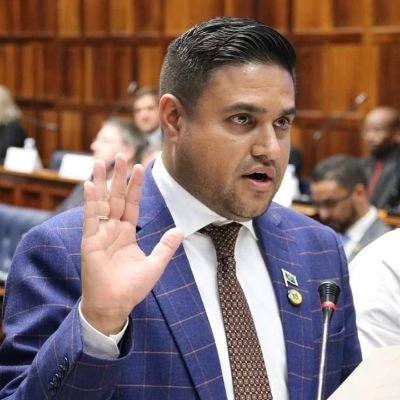The African National Congress (ANC) has sharply criticized Bishops Diocesan College, a prestigious Cape Town boarding school, following the resignation of its chairman, Crispin Sonn. The ANC’s Khalid Sayed MPL called attention to the deeply rooted racism in the Western Cape, which he argues is exemplified by the treatment of Sonn, a figure previously celebrated for his commitment to transformation.
Sonn’s resignation, which was announced on November 14, came after he was forced to step down for expressing his views on the ongoing genocide in Palestine. Sayed condemned the school’s actions, claiming that Sonn, who had long been a proponent of transformation, was silenced for speaking out on a global issue. He argued that this reflected the hypocrisy of an institution that claims to champion moral courage but punishes free speech.
“Racism in our schools, from Bishops to Pinelands, reflects the systemic failures of this DA-led provincial government. This cannot continue,” Sayed said, referencing the broader issue of racism within Western Cape schools. He further criticized the DA for not aligning with South Africa’s stance at the International Court of Justice (ICJ), and called for a broader transformation of the education system to create safe spaces that celebrate diversity and promote moral courage.
Sonn’s resignation follows a previous incident in which he was forced to apologize for a pro-Palestine post he made on social media. The post, which has since been deleted, sparked controversy within the Bishops community, prompting members of the Old Diocesan Union to issue a statement denouncing Sonn’s actions as “inappropriate” and “unacceptable.” In his apology, Sonn explained that his post had been misunderstood by some, leading him to withdraw and delete it. However, despite the apology, the pressure mounted, culminating in his resignation.
The ANC’s comments underscore the broader political and societal tensions surrounding the situation, with Sayed suggesting that the Western Cape must do more to embrace diversity and align its actions with its stated values. The ANC also called on institutions like Discovery to be held accountable for actions they perceive as conflicting with South Africa’s principles of justice and morality, particularly regarding the Israeli-Palestinian conflict.
In the wake of Sonn’s resignation, Dr. Chris Haw, an existing member of the Bishops Council, has stepped in as the acting chairperson of the board. This controversy highlights the ongoing struggle within South African institutions to reconcile free speech, transformation, and the pressures of public opinion—issues that are likely to continue shaping the region’s political and educational landscape.
